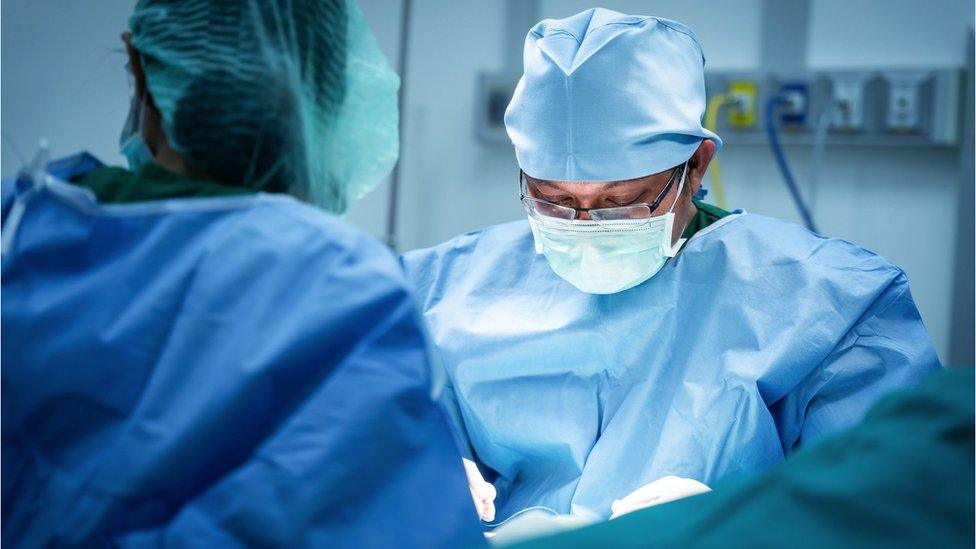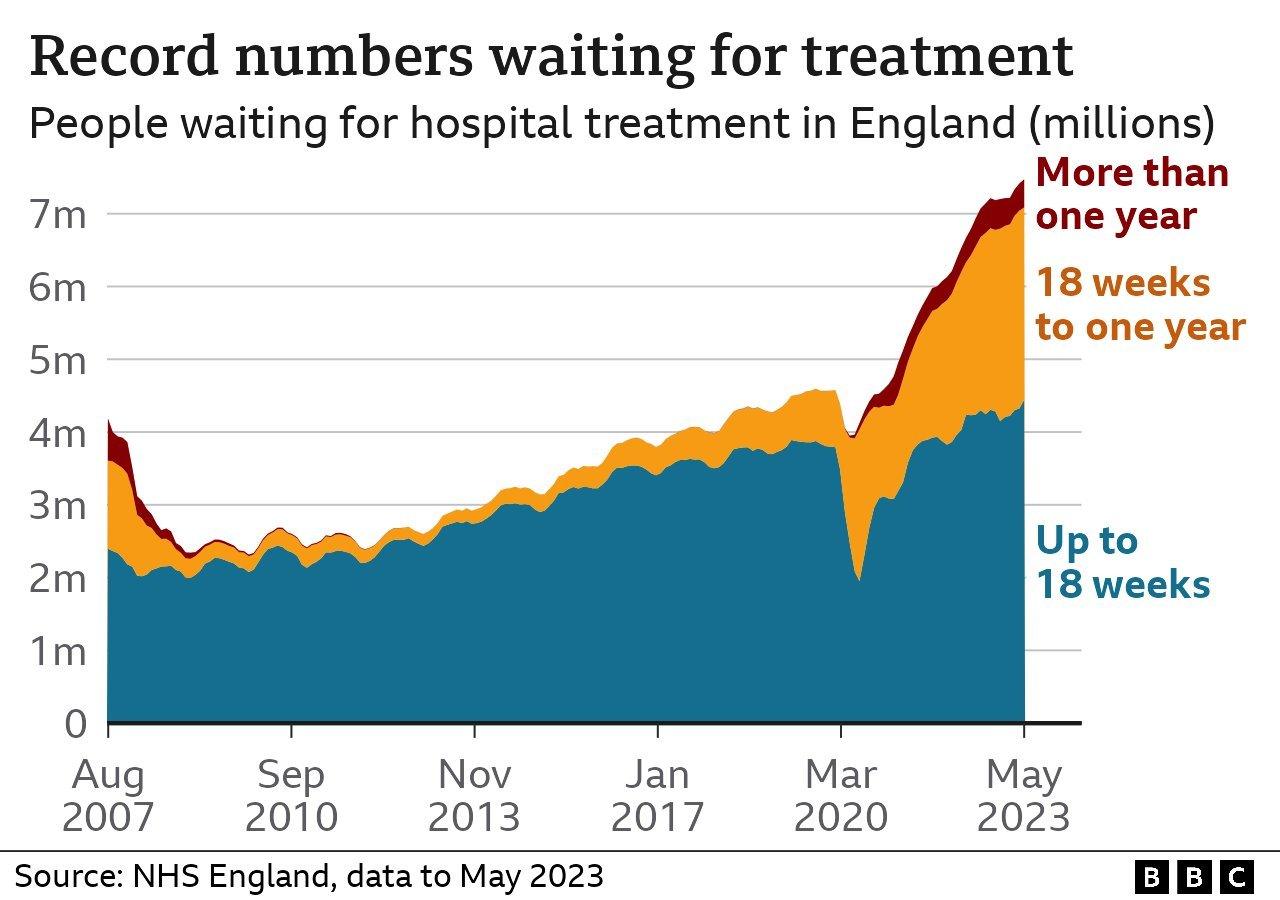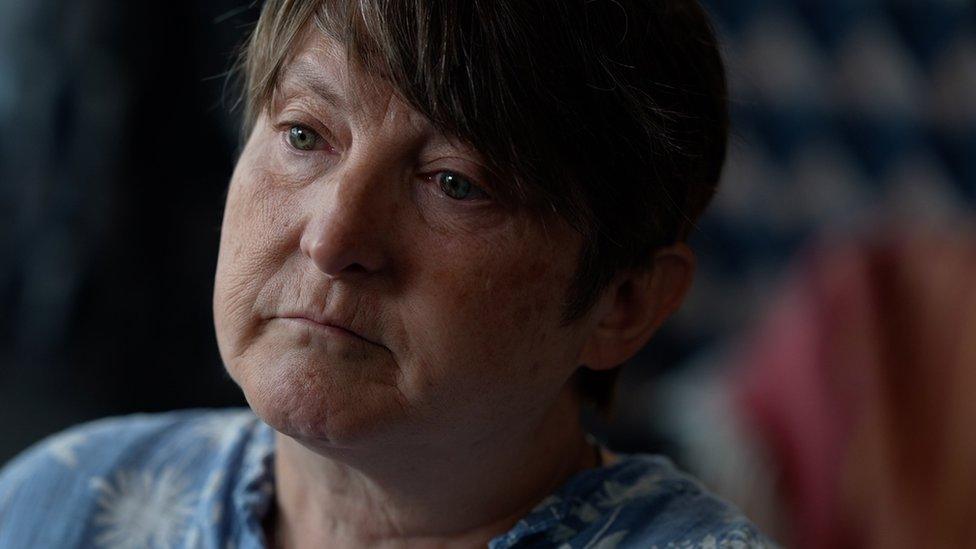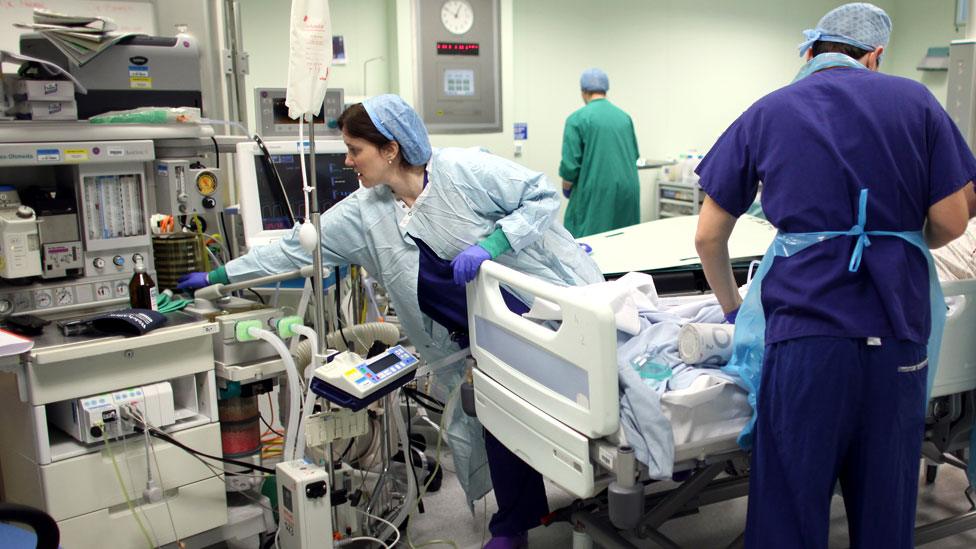NHS to expand use of private sector to tackle waits
- Published
- comments

The use of the private sector to tackle the NHS backlog in England is to be expanded, the government says.
Ministers say they want to unlock spare capacity to get more people the treatment and operations they need.
This includes opening eight privately-run diagnostic centres and using new rules to make it easier for the NHS to purchase care in the private sector.
But health minister Maria Caulfield warned NHS waiting lists were likely to get worse before getting better.
Speaking on LBC she said: "We are almost at the peak but we think it will go slightly higher, but it will then start to come down, and that is why we are making announcements like this now, so that we are getting that capacity and that infrastructure so that patients can get their treatments more quickly.
"But yes, we are being honest with people that the total number is likely to rise a little bit more before it starts to come down."
The measures form part of a recently published "system-wide recovery plan", external designed to tackle the growing backlog of people waiting for care.
Measures already announced include more choice for patients, external on where they have appointments.
From October 2023 the government has pledged that patients waiting more than 40 weeks for their first outpatient appointment or treatment can request switching to somewhere else for care.
It comes as a record 7.5 million people are waiting for treatment - three million more than before the pandemic.
Making greater use of the private sector is something Labour has called for, and that the government has been looking at since late 2022 after setting up the Elective Recovery Taskforce.
The private sector already carries out hundreds of thousands of treatments and appointments for the NHS every year.
But it has said it has the capacity to carry out about 30% more than it is.
Ministers are hoping a relaxation of the rules governing the award of contracts by the NHS will create more flexibility for local health bosses to use the private sector when needed.
In these circumstances, the private sector is asked to do the work at NHS prices.
The rule change - known as the provider selection regime - will come in before the end of the year and means there will be greater freedom to award contracts without tendering.
As well as this, the government has announced 13 new community diagnostic centres - eight of which will be run by the private sector in:
Thurrock
Northampton
South Birmingham
Redruth (Cornwall)
Torbay
Yeovil
North Bristol
Weston-Super-Mare
The five NHS centres are in:
Barking (London)
Skegness
Lincoln
Nottingham
Stoke-on-Trent
These will be open by the end of the year and are part of a commitment to set up a network of 160 clinics by 2025.
There are currently 114 open, allowing patients to access a range of tests and scans outside of hospital.

Despite this, the NHS is still struggling to carry out diagnostic tests quickly enough, with a quarter of patients waiting more than six weeks, compared to 3-4% before the pandemic.
Health Secretary Steve Barclay said: "We must use every available resource to ease the pressure on the NHS."
Saffron Cordery, deputy chief executive of NHS Providers which represents trusts in England, welcomed the announcement.
"At a time when resources are significantly constrained, looking beyond NHS resources in order to support trusts is very important," she told BBC Radio 4's Today programme.
She said the NHS had long used different types of providers, adding: "What we do need to see is desperately needed additional capacity."
Helen Buckingham, director of strategy at the Nuffield Trust think thank, said collaboration between the NHS and the private sector was necessary but "unintended consequences" needed to be considered.
She said: "This scheme will need to be carefully designed to make sure that the NHS is not simply left with the most complex cases without the right staff or capacity to deal with them."
She added: "Waiting times for tests, scans and results were growing before the backlogs caused by the pandemic, fuelled by growing demand, lack of investment in new equipment and shortages of trained specialists.
"While more independent sector involvement will help boost capacity quicker, it does not fix the root of the issue or provide the NHS with the resources it needs to meet the demand on it for the longer-term."
Rachel Power, of the Patients Association, welcomed the policy. She said that coupled with previous guidance to help people exercise more choice over having treatment, patients should get an option of five different hospitals and clinics when they are referred. This should help them get the quickest treatment they can, she added.
Labour's shadow health secretary Wes Streeting said the government should have acted sooner to make more use of the private sector.
"Patients face record waiting times while the Tories dither and delay," he said.
Related topics
- Published9 August 2022

- Published10 August 2022

- Published22 July 2022
